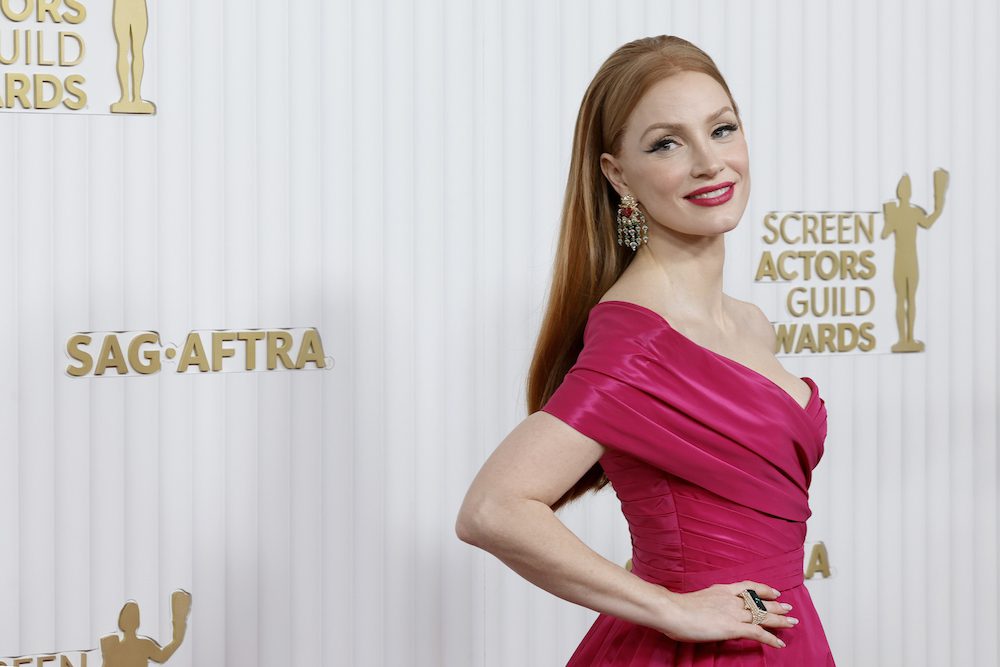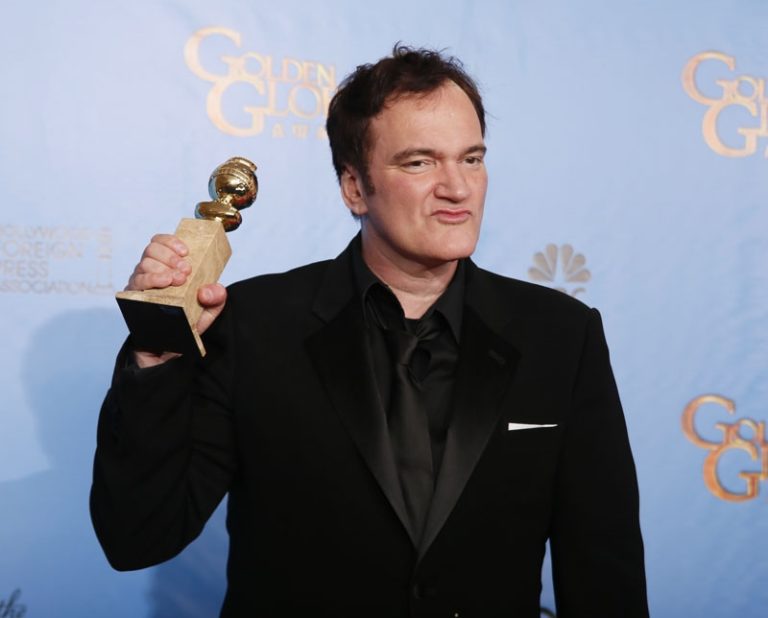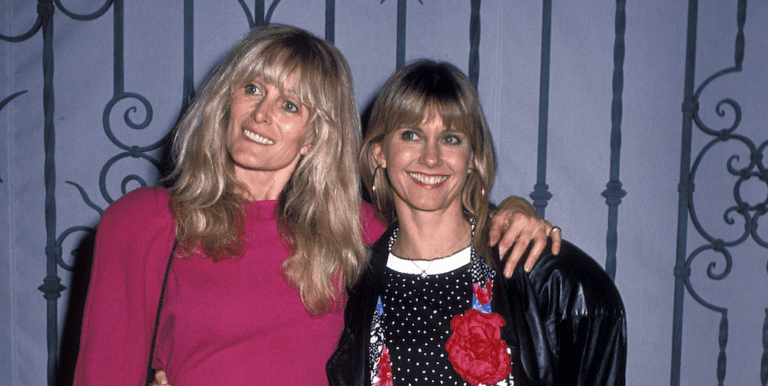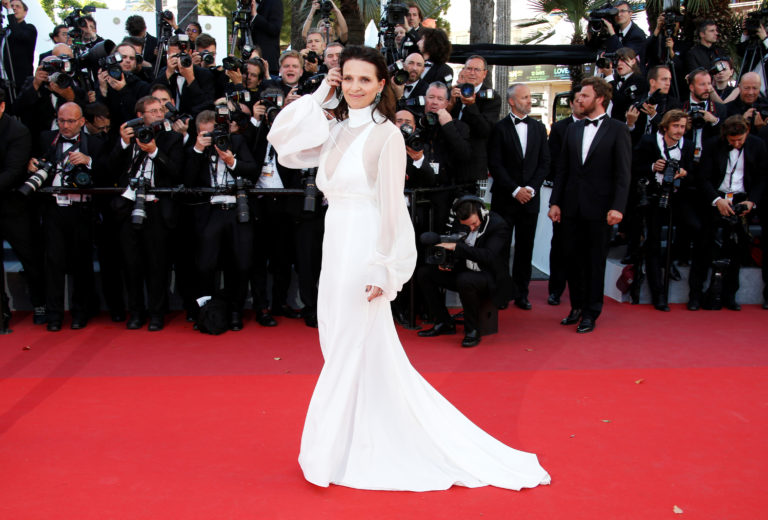Sexually abused as a teenager, the pain she endured in her life she wears as a barrier to the outside world. Sylvia would rather forget her past. Conversely, Saul, played by Peter Saarsgard, is suffering from early on-set dementia and desperately trying to remember his past. Together they forge an unlikely relationship and in doing so, help each other heal.
A recipient of an Academy Award and a Golden Globe, some of Chastiain’s most critically acclaimed films include The Help (2011), Zero Dark Thirty (2012), Interstellar (2014), A Most Violent Year (2014), The Martian (2015), Molly’s Game (2017), Scenes from a Marriage (2021), The Eyes of Tammy Faye (2021), and George & Tammy (2022).
Chastain is a fierce advocate on all issues relating to women’s rights, from gender pay equality to abortion rights in the U.S.
She lives in New York City with her husband of six years Gian Luca Passi de Preposulo, an Italian count with whom she is raising their two daughters. He is an executive for the luxe brand Moncler.
Chastain promoted Memory at the Venice and Toronto film festivals this year.
You recommended Peter Saarsgard to play opposite you. Why was he the idea actor for the role?
Oh, I’ve always wanted to work with Peter. We met a few times before this and we’ve talked about it. I’ve not been hidden in my fan-ship of his movies and who he is as an actor. He’s a real artist. He’s a shape-shifter. It was a big pleasure.
This is a low budget movie which meant in your case that you didn’t have a trailer and you did your own hair and makeup?
When (director) Michel Franco said that there’s no trailer, I was like, ‘That’s fine!’ And he said, ‘You’ll be doing your hair most days.’ I’m like, ‘No problem!’ And, actually, I went to Target and bought my own costume. It was a really exciting and wonderful way of working.
Have you experienced anything like your character does in the movie? Has anyone close to you had dementia?
I personally haven’t experienced that. I know a lot of my dear friends have and how traumatic that can be.
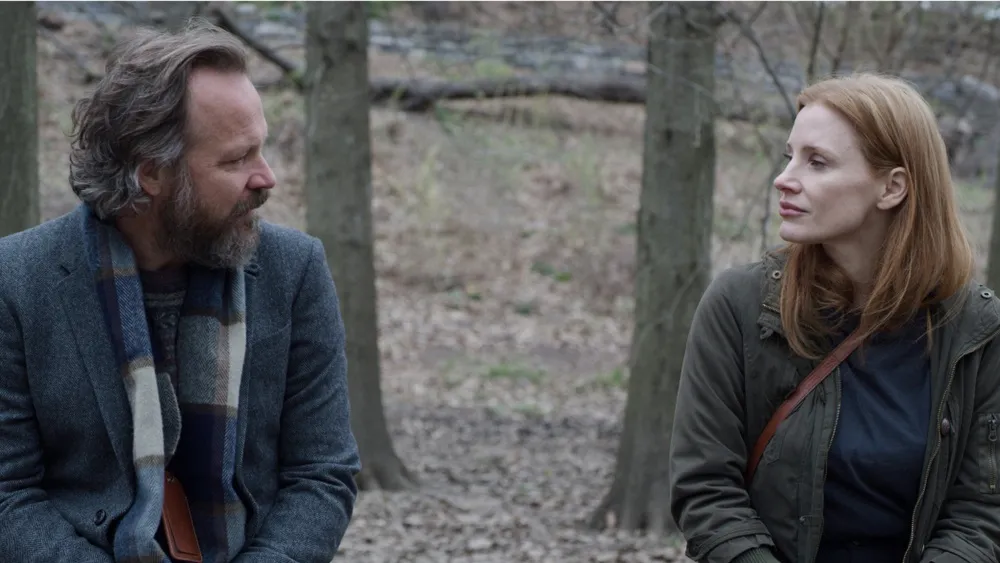
What did you relate to about the script?
It was right after the pandemic and also right after Time’s Up and Me Too and as I started to read the story, I thought ah-ha, I know what kind of film this is. I get it. This is in response to what we’ve just been through and this is some kind of revenge drama. And as I read it and it started to unfold to me. I was so moved by how absent it was of any cliché and I was so moved by the story of this woman who had led her life or she had led the trauma in her life in front of her.
It’s what she used as a shield and it closed her off to the world. She used it as a shield to protect her daughter and in essence, really, she stopped living. And how beautiful it was for her to watch this journey of her learning to live again, to open up, to find a relationship with someone who is not tied to any chains or memory of the past and sees her for who she is every single moment as new, like a rebirth. I found that to be incredibly inspiring.
Hopefully an audience will watch this film and have a cathartic experience since we’ve all moved out of this dark time and hopefully, we’re heading towards something with more light.
The last few years or so has been an awakening in society.
I think it’s been an incredibly important moment in the last decade for an examination of our society. It’s very important that we are acknowledging the violence and the crimes that happen to women every single day, every single minute, all over the world. That’s the first step to acknowledge. I wonder if the second step is to heal from it and to figure out how to heal from it through conversations.
It’s a huge passion of mine to protect women. It is something that I really feel is a strong guiding principle of my life to do whatever I can to use my platform to support safe working environments, and in general, just a safe space for everyone to live.
There seems to be violence against women around every corner.
I think there’s sadly, if you look at the statistics, a huge high rate of women that have suffered violence and sexual violence. Most of us know someone who has had that experience. I just heard about a flash mob also in support of ending violence against women.
What do you think about that?
I am fully supportive of anything that continues a conversation and moves us forward as a society.


